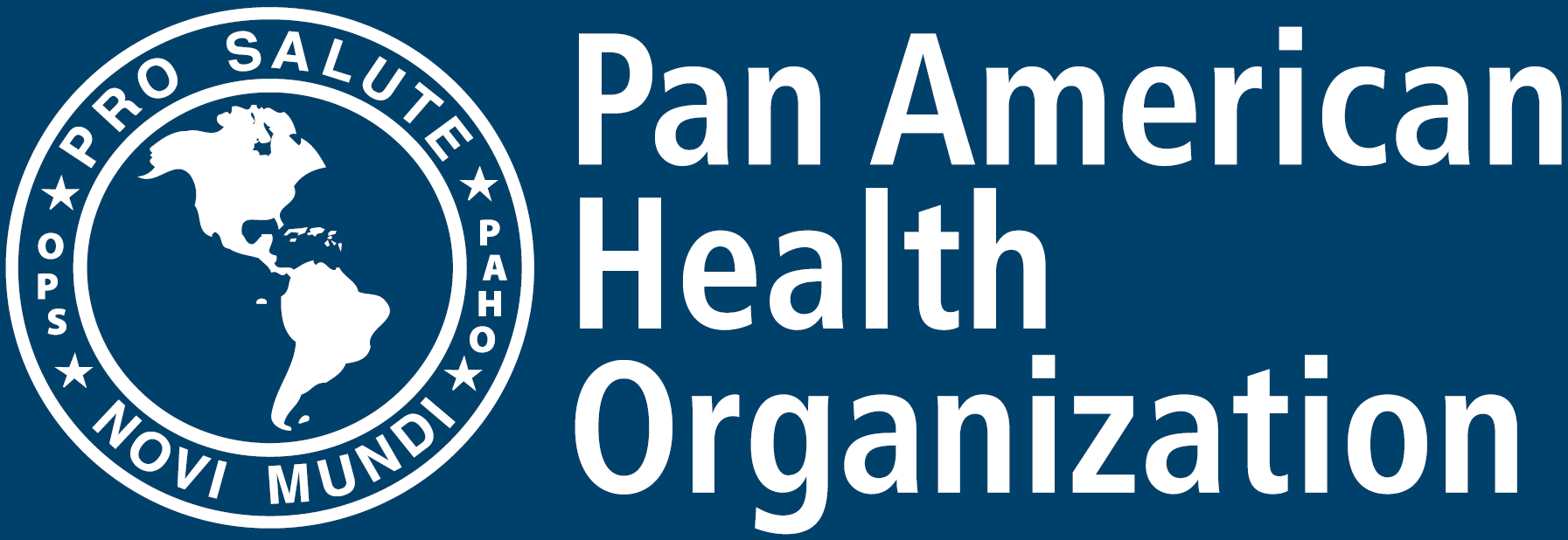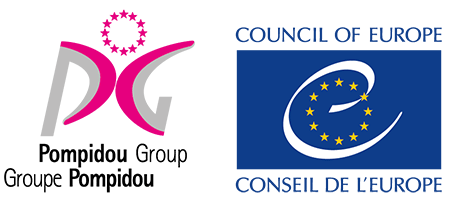Synthetic Drug use Information Systems, for a Highly And Responsive Treatment Environment [SHARE] A global community of practice for the development of drug information systems to inform the effective planning of national drug use disorder treatment and care systems #ShareFacts - #SaveLives
Effective drug information systems can be a key source of information for the planning and development of evidence-based and needs-based drug use disorder treatment and care services and systems, especially also with a view to the emergence of synthetic drugs and changing drug use patterns in many parts of the world.
The SHARE initiative will have a global and national level component.
At the GLOBAL level, UNODC is suggesting the SHARE initiative to invite UN Member States to join a community of practice for mutual support and exchange of experiences on the development of national drug information and drug treatment systems in a building blocks approach, including early warning systems that allow for early responses to new synthetic drug challenges and consider information received from health and social services. Countries with more and less experience in drug-related data collection and drug information system will be invited to join this new community of practice and learn from each other. UNODC will encourage technology transfer around innovative, especially lower-cost data collection approaches with proven feasibility and explore their adaptation for lower resource settings (e.g. waste water analysis in places with functional sewage systems).
At the NATIONAL level, building on the Lisbon Consensus on drug information systems, the “SHARE initiative will enhance the local preparedness of countries for the increased emergence of synthetic drugs and be ready to use information from various sources for the adaptation of national drug use disorder treatment and care systems in line with changing drug use patterns. National level efforts to develop local drug information systems, will focus on capacity building and technical assistance for the implementation of selected Lisbon Consensus indicators, with a view to those with higher feasibility in lower resource settings as well as other innovative data collection tools that have been implemented successfully in countries without pre-existing drug information systems, eg. The UNODC/WHO facility survey for substance use disorder treatment services. The combined application of quantitative and qualitative data collection strategies is recommended for different purposes.
Suggested initial Lisbon Consensus indicators for which data collection can be initially considered a priority in the framework of the SHARE initiative, will include but not necessarily be limited to
- Drug consumption among the youth population
- Drug consumption among special or vulnerable populations
- High-risk drug consumption
- Service utilization
Furthermore, a number of newly developed tools will be made available to programme countries, such as the UNODC/WHO Facility survey for substance use disorder treatment services . The facility survey has proven to have a good feasibility even in countries without prior drug information systems and limited available information on drug use and drug treatment service provision. UNODC has established a possibility to implement the facility survey online, in cooperation with UNODC’s Drug Monitoring Platform. Rapid assessments on the situation with regard to drug use, drug dependence and available services can be an initial step to understand local drug use patterns and services available as well. UNODC has conducted such in multiple countries and has expanded such rapid assessments now to humanitarian settings and situations of displacement with very limited epidemiological or routine data available. Tools developed under UNODC’s Global Assessment Programme (GAP) are furthermore available to support local data collection as part of more institutional efforts to develop national drug information systems.
The below gives an example of the practical relevance of various data collection efforts under consideration for SHARE for the development of national prevention and treatment responses.
- School surveys: Implementation of effective prevention and treatment initiatives for children in school age, guided by school survey results; e.g. Treatnet Family or family skills programmes
- Facility surveys: Introduction of quality assurance for drug use disorder treatment services based on facility survey data and Drug treatment system planning
- High risk drug consumption surveys: Implementation of strategies to reduce the negative health and social consequences of drug use, e.g. the UNODC/WHO Stop Overdose Safely (SOS) Initiative on community management of opioid overdose
- Service use information including Quality Assurance and Treatment Demand Indicator: Introduction of quality assurance for drug treatment systems based on treatment demand indicator information at consolidated level, Drug treatment system planning and Monitoring of changing drug use patterns for which people are seeking treatment for
- Qualitative studies: Implementation of strategies for people using drugs based on a better understanding of their situation and needs
- Analysis of routine data from different settings (e.g. prisons, emergency rooms, police in addition to drug treatment services): Implementation of effective prevention and treatment initiatives in different settings, guided by the reporting of drug use, drug use disorders and overdose cases
- Network scale up:Indirect assessments of drug use prevalence for service planning
- Wastewater analysis: Using sampling and analysis of waters, wastewaters, soils and wastes
- Drug informaton systems: Principles, structure and indicators
- UNODC’s Global Assessment Programme on Drug Abuse (GAP)
- WHO/UNODC Substance use disorder treatment facility survey
- EMCDDA/UNODC Drug treatment systems in the Western Balkans
- UNODC Proyecto QALAT. Garantía de calidad en el tratamiento de los trastornos asociados al uso de drogas en América Latina y el Caribe Informe Regional sobre el proceso y los logros de la implementación de la primera fase del proyecto QALAT (2020-2021)
- Cartographie des structures de prise en charge des troubles liés à l’usage des substances dans les pays francophones de l’Afrique de l’Ouest
The SHARE initiative will build on the experience of UNODC’s global programmes on treatment of drug use disorders, through which collection of nationally relevant data could be improved over the past years:
- School surveys in Cote d’Ivoire, Senegal, Guinea
- Facility surveys completed in Southeast Europe (Serbia), Latin America & Caribbean (Bolivia, Ecuador, Guatemala, Mexico, Panama, Dominican Republic), West African Francophone countries (Benin, Burkina Faso, Cote d’Ivoire, Guinea, Mali, Mauritania, Niger, Senegal and Togo), Central Asia (coming up)
- Rapid assessment on substance use in humanitarian settings (Uganda, Ecuador upcoming)
- Rapid assessments conducted for most African countries
Proposed activities at NATIONAL and REGIONAL level
- Launch of the SHARE initiative with governments
- Development of a harmonized SHARE package with simplified and feasible data collection tools and indicators. The package at NATIONAL and REGIONAL level includes in 5 domains such as schools, facilities, drug use population, community & complementary setting.
- Schools (1 school survey)
- Drug use disorders treatment Facilities (1 Facility survey + 1 Drug Demand Indicator/indirect assessment + 1 Quality Assurance for services)
- Drug users and High-risk populations (1 Qualitative study + 1 High risk drug consumption survey)
- Community (1 Water analysis survey and other data collection approches)
- Drug use data collection in complementary settings (1 routine data collection in a complementary setting)
- Development of technical guidance for the implementation of the SHARE package
- Training of professional involved in the implementation of the SHARE initiative
- Country specific contextualized field-testing of the SHARE package which includes 8 comprehensive data collection packages
- 1 school survey +
- 1 Facility survey +
- 1 Drug Demand Indicator/indirect ass in services +
- 1 Quality Assurance for services +
- 1 Qualitative study amongst drug users +
- 1 High risk drug consumption survey +
- 1 Water analysis survey in the community +
- 1 routine data collection in a complementary setting
- Incremental implementation and scaling up of the SHARE package
- Dissemination and knowledge management the SHARE package
- Impact evaluation of the SHARE package
- Improved information on the emergence of synthetic drug use in new groups and settings
- Increased capacity to estimate the extent of synthetic drug use in specific populations (e.g. people with problem drug use, youth, people in human mobility)
- Improved capacity to monitor existing synthetic drug use patterns (type of drugs, by whom, what ways)
- Increased capacity to monitor changing trends in patterns (over time, geographic area and population groups, detecting new drugs, methods of use)
- Increased understanding of health and social consequences
- Established networks for support and exchange on drug-use related data among countries
- Improved quality of reporting in line with international requirements (e.g. Annual Report Questionnaire)
- Improved data on the extent of (synthetic) drug use in certain settings and among certain groups
- Improved data on synthetic drug use patterns
- Development of routine data collection systems, eg for Treatment Demand Indicator
- Improved data from the monitoring of changing trends in patterns of use (over time, geographic area and population groups including high risk synthetic drug use, injecting drug use, prisoners, detecting new drugs, methods of use)
- Improved data on health and social consequences
Current State Participants
- Europe: Albania, Bosnia and Herzegovina, Kosovo, Serbia (participate in facility survey mapping implemented by EMCDDA and UNODC)
- Latin America & Caribbean: Bolivia, Ecuador, Guatemala, Mexico, Panama, Dominican Republic (participated in facility survey)
- Central Asia: Kazakhstan, Kyrgyzstan, Tajikistan, Turkmenistan and Uzbekistan (participated in facility survey)
- Africa: Benin, Burkina Faso, Cote d’Ivoire, Guinea, Mauritania, Niger, Nigeria, Senegal, and Togo (participated in facility survey and/or school survey)
Anja Busse, Programme Officer Prevention, Treatment and Rehabilitation Section Drugs, Laboratory and Scientific Services Branch United Nations Office on Drugs and Crime Email: anja [dot] busse [at] un [dot] org (anja[dot]busse[at]un[dot]org)




